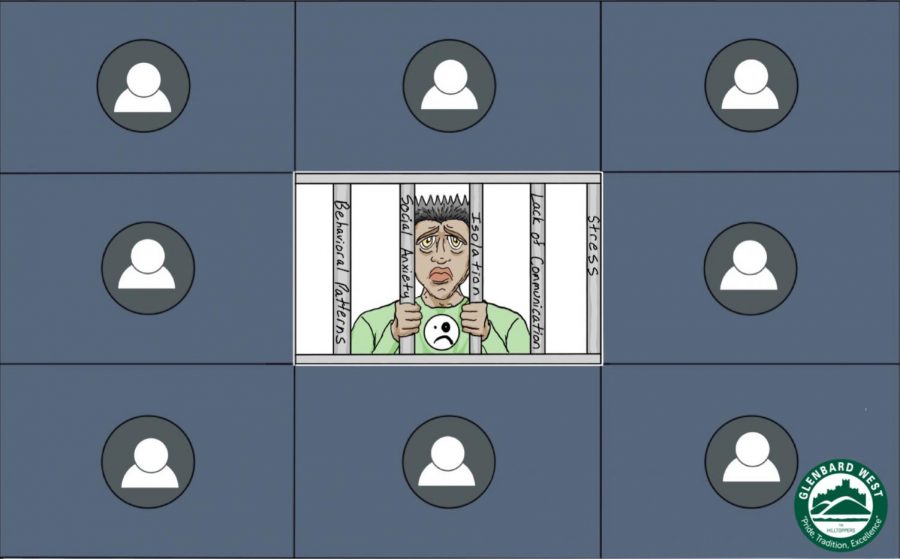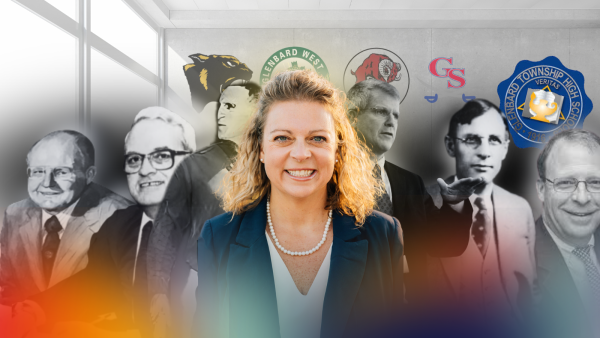Opinion: Students experience unforeseen ramifications of remote learning
One year from today, the scars of the millions of people we lost to COVID-19 will be with us. We will remember the uncertainty of the early months of the disease and we will remember the uncertainty we faced every day.
We wear masks in public, stay as distant as possible, and avoid meeting new people unless necessary. These important safety measures, meanwhile, have been building behavioral reward systems. BF Skinner, a 20th century behavioral psychologist, was the first to describe a type of learning called operant conditioning. According to Skinner, through the repetition and reinforcement of behavior, certain behaviors can become acclimated. While he used rats and pigeons in his famous experiments, the principles of his research applied to human behavior as well.
Every time we put on a mask or stayed away from others in an attempt to avoid getting sick, we reinforced patterns of behavior. We have been conditioned to keep our distance, to be less social creatures, but at what cost?
The greatest side-effect of all of the changes from COVID-19 has been how our brains work. We don’t think the same. We don’t act the same. These changes, especially at the high school level, have dramatically altered our school community and will leave it damaged for years to come.
A Science Magazine report on the unintended consequences of social distancing notes that research proves social contact can buffer the negative effects of stress. These effects can range from headaches to potentially fatal cardiovascular disease. While these consequences present a potential danger to all age groups in our current era, the effects can be more damaging to adolescent communities where teens are learning to build relationships and their identities.
High school students face serious dangers to their social well-being as well as their mental health. While remote-learning is a safer method of schooling as COVID-19 cases continue to rise in our state, there have been distinct drawbacks to the social well-being of students.
Reflecting on his difficult transition to high school and remote-learning, freshman Sean Egan says, “I am used to talking to people, my friends, almost every day, but we [couldn’t] really do that anymore.” Even with the opportunity to talk online or on the phone, there is something lost without the human connection. With damage already settling in, Egan adds, “my social skills are not the same anymore.”
Even seniors have felt the shifts in the social tides with distancing practices and remote learning. Senior Luca Diomede, when asked how human interaction has changed, noted, “you can’t really tell tone or mood or stuff like that on Zoom.”
Studies performed by Albert Mehrabian have shown that less than 10 percent of your meaning comes from your actual words, with the rest of it stemming from your tone of voice and behavioral cues. With over 90 percent of our communication blocked on a screen it is understandable why many frustrated students like Diomede say, “Sometimes it is just like talking to your screen.”
However, some argue that this remote distancing hasn’t broken apart society or our social well-beings. School social worker Ms. Bass has dealt with many students with varying needs. “[There are] two sides of what I am seeing with social behaviors,” Ms. Bass explains. “Some are finding it to be very difficult… feeling isolated, not having those connections like before” while “others are still finding ways either virtually [or otherwise] to connect.”
In essence, this social isolation acts as a spotlight, exposing all of the hidden deficiencies in our social skills and mental health. These weak skills were buffered by the bombardment of social interaction pre-coronavirus. However, social distancing “may heighten psychiatric vulnerability and exacerbate existing psychological difficulties,” says researchers Leah Lessard and Hannah Schacter in an Education Week article.
Even so, research leans toward this being one of the greatest social changes of our time. Biologically speaking, teens have been damaged to their core. More information from the Education Week article points out that “friendships, in particular, have been shown to excite reward systems in the adolescent brain,” leaving us in our current state with no reward and deeply at a loss with our “social skills, including comprehension and nonverbal cues.”
Social distancing and the ramifications on our mental and social health are not some fleeting phase. Even once we “return” to the life we used to have, we will not be the same people anymore. The thoughts and fears of the past months have left us always looking over our shoulder waiting for more chaos to rain down.
Despite all of this worry there lies a small silver lining. Now, we save more for a rainy day. Now, we cherish the time we will get to spend with family and friends (no matter how awkward or uncomfortable). Now, broken down to our most bare selves, we have the opportunity to build our best selves, starting today.








